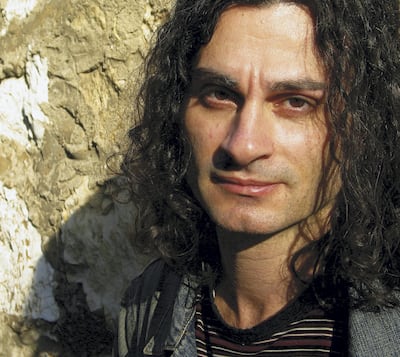Words can hurt and words can heal. In the Lebanese filmmaker Ziad Doueiri's thrilling new courtroom drama, The Insult, they do both.
The film grew out of a real incident three years ago involving Doueiri, what he calls his "hurtful mouth". It digs into the sectarian religious and political fault lines that still exist in Lebanon, almost 30 years after the end of the country's bloody civil war.
Talking last week during the Venice Film Festival, where The Insult is competing for the Golden Lion, Doueiri recalls watering plants on a balcony in Beirut when someone swore at him from the street below. "I leaned over the balcony and said, 'Why are you insulting me?' and he said, 'Because your water's falling on me.' I noticed from his accent that he was Palestinian and I said what you should never say to a Palestinian … I wanted to hurt him as much as possible, and I succeeded."
Doueiri apologised – "He couldn't even look me in the eye. He was very, very hurt". In the film, his words (unprintable here) are spat out by Toni (Adel Karam), a Lebanese right-wing Christian car mechanic, towards Yasser (Kamel El Basha), a Palestinian construction worker who fixed his illegal water pipe, after the Palestinian refuses to apologise for insulting him. There follows an escalating argument that begins verbally, then turns physically violent and ends up in court as a case that grips the public, explosively splitting opinion along lines that expose the simmering tensions in Lebanese society.
“In the Middle East, you know how we are,” says Doueiri. “We are like a powder-keg, waiting for a small spark.”
The filmmaker and his co-writer, Joelle Touma, were going through a divorce while writing the film, which no doubt helped give a sharpness and energy to the confrontations between the characters Toni and Yasser, and between their respective lawyers.
The Insult doesn't take sides, though, and like their previous film, The Attack, about the fall-out from a suicide bombing in Tel Aviv, it shows great empathy by acknowledging the hurt and trauma that underlie its antagonists. This is impressive given Doueiri's background.
Born in 1963, in Beirut, he grew up in a secular Muslim family with parents who "joined the resistance … a left-wing political movement that totally dedicated themselves to the liberation of Palestine. That's how my parents were. They carried the Palestinian flag like it's God," he says. "We grew up hating those people [the Christian militias]. And when I say hating them, it's not like they were living very far away. They were living across the street … a few metres away."
In 1983, after graduating from high school, Doueiri moved to America to study cinema. When he returned 15 years later, to make his first film, West Beirut, about the civil war, he had gained some distance.
"Time had passed by so you start to become curious about this person that you hated so much," he says. Learning to love rather than hate, he met and married Touma, a Lebanese Christian.
“In ’58 [during the Lebanon crisis], my mum carried weapons. Literally. And shot [guns],” says Doueiri. “So she [Touma] came from the camp [side] that my mum carried a weapon against. She is the ultimate enemy.”
When Doueiri agreed to have their daughter baptised – “so she had both religions in her, although we’re not religious” – his mother refused to attend. “I used to want to burn every church when I was young and now I’m taking my daughter and baptising her in one of the biggest churches up in the mountains. My mum went crazy,” he says.
Doueiri's mother, now 80 and still a lawyer, helped him with the legal aspects of The Insult's story. But, given her pro-Palestinian leanings, she kept trying to push scenes in a direction favouring Yasser.
“She’s an incredible woman but I hate her opinions,” Doueiri says, laughing. “I fight with her all the time. I’m not that pro-Palestinian and every time we were studying a law for my screenplay, she would take that law and manipulate it to favour the Palestinian guy.”
He resisted overly sympathising with either character and in the film actually shows how historic crimes against Christians like Toni have often been deliberately hushed up, or forgotten about, unlike, I suggest to Doueiri, the Sabra and Shatila massacre.
“Exactly. Bravo,” he says.
“Sabra and Shatila became like this crucifix. It became untouchable. Like the mother of all massacres. And this is one of the things we are trying to talk about in the film: nobody has exclusivity on suffering. My mum and dad always thought the Palestinian tragedy was the biggest tragedy and all other tragedies don’t exist. And now I am coming in the film and saying, ‘Wait a second. Who said that only you guys have suffered? There are others suffering.’”
Doueiri expects The Insult to create a "huge" discussion in Lebanon, where it will carry a disclaimer (agreed to by the filmmaker) saying the views expressed in the movie are not those of the government, but insists this wasn't part of his intention.
“Will it open debate? Probably. But it was not what we set out to do. Honest to God. If you start doing films just because you want to provoke, you mess up your movie.”
____________________________
Read more:
Emiratis flock to see local comedy Edhay in Thailand
Film review: Shubh Mangal Saavdhan is sensitive, witty, and inoffensive
Venice Film Festival: Latest news
____________________________


